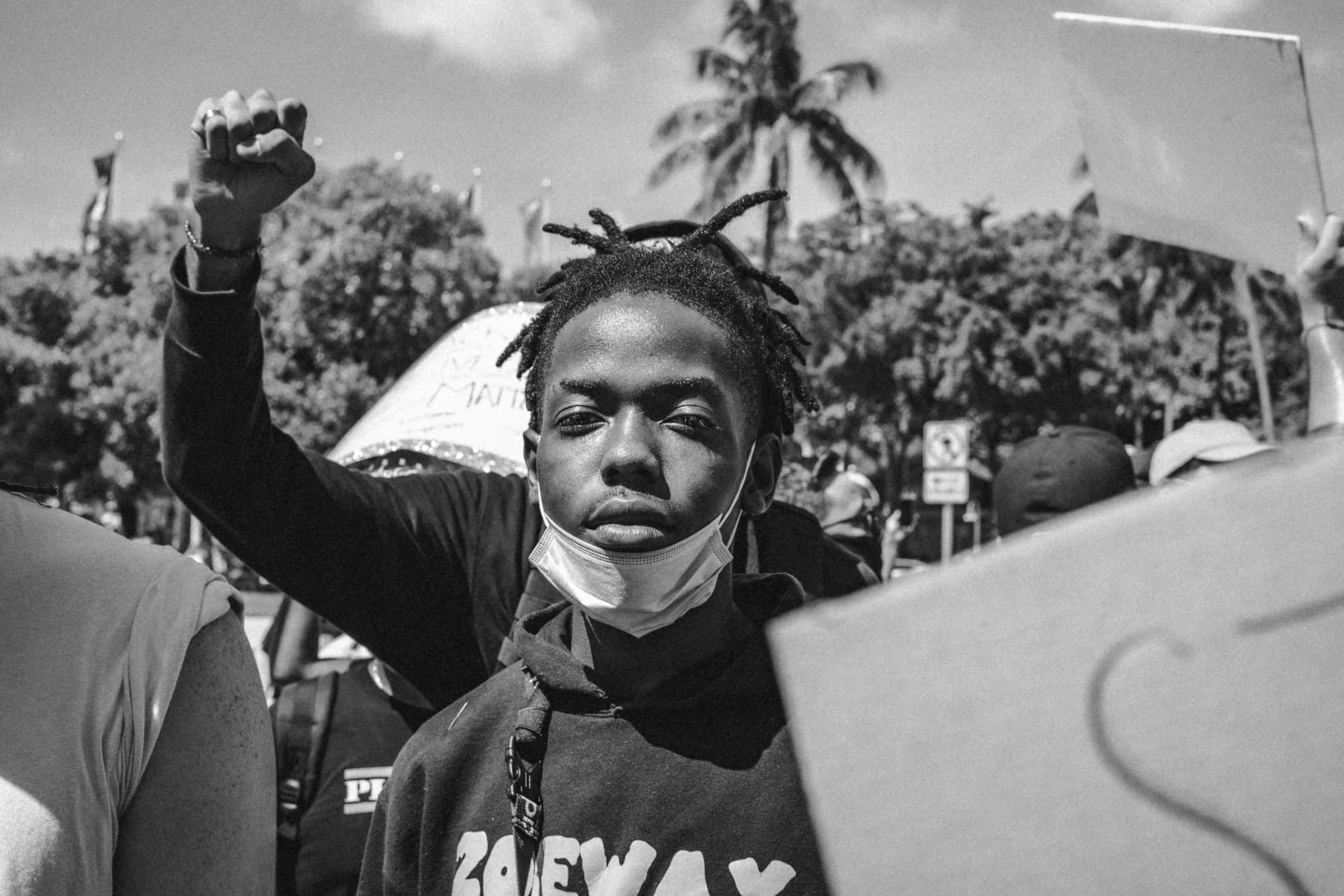
30 May What Are Your Legal Rights to Gather and Protest in Arizona?
The First Amendment to the United States Constitution asserts that we, the American people, have the right to freedom speech, a free press, to peacefully assemble, and to petition the government for a redress of grievances. Amid the recent BLM protests surrounding the killing of George Floyd by officers of the Minneapolis Police Department, questions have arisen as to what specific protest laws exist in Arizona.
What is considered peaceful protesting?
Peaceful protests, or nonviolent resistance, have been used throughout the generations as a catalyst for change. They can include boycotting certain products, participating in a march or a sit-in, displaying a particular symbol, or simply handing out flyers.
The following are your right to engage in if you are participating in a peaceful protest in a public space:
- Carry signs
- Distribute literature
- Chant, sing, dance, or any other display of free speech
- Collect petition signatures
- Collect donations
- Set up a table on a walkway as long as the walkway is not entirely blocked
Where is it legal to protest?
Generally speaking, your rights to peacefully protest are the strongest in public spaces such as parks, streets, sidewalks, plazas or in front of government buildings as long as you are not interrupting government business. Protesting on private property that is not your own can be restricted by the owner.
Do you need a permit?
Depending on the size and nature of the protest, the government can impose certain restrictions on assemblies and gatherings. If you are marching in the streets or on the sidewalk without obstructing traffic, you probably won’t need a permit. According to the ACLU Arizona chapter, “the government cannot impose permit restrictions simply because it does not like the message of a certain speaker or group.” If the protest plans on shutting down streets, you typically need a permit.
What should you do if the police issue an order to disperse?
Shutting down a protest by dispersal is within the legal realm of action for law enforcement, but it should be considered a last resort. Reasons police may issue an order to disperse include: if the protest is beginning to get violent or threatening public safety; if there is a government-mandated curfew; or if the gathering is interfering with traffic.
A lawful dispersal order must include a reasonable opportunity to comply, a clear exit path, and sufficient time to respond. If you are a part of a protest that is being dispersed by law enforcement it is best to safely remove yourself from the area.
If you believe your rights have been violated by an officer, do your best to gather as much information about the situation as possible. This includes the officer’s name, badge number, vehicle numbers, and the agency they work for, as well as any photos or videos of injuries sustained or improper police behavior. Contacting eyewitnesses for information is beneficial as well.
Criminal Defense Attorney in Phoenix
If you have been charged with a crime while protesting, you should hire an experienced and proven criminal defense attorney. Todd Coolidge has over 25 years of experience and is certified as a Criminal Law Specialist through the Arizona Board of Legal Specialization. He will leave no stone unturned in order to get your charges reduced or dismissed. Call for your free case consultation today.




